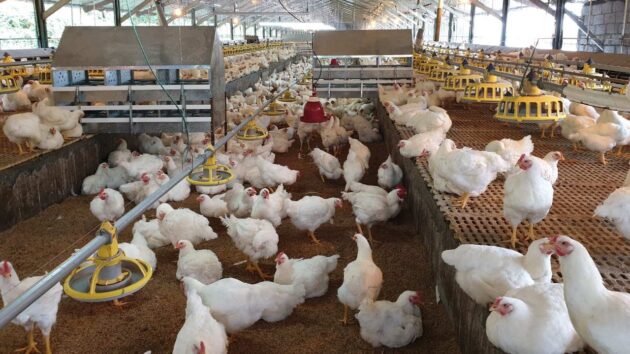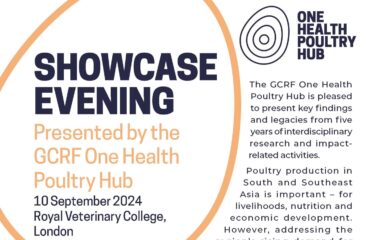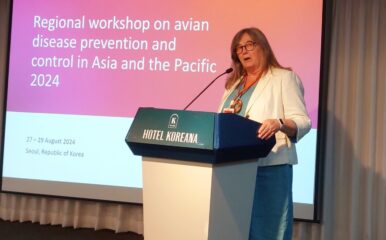
Fostering sustainability and competitiveness: a national poultry policy for Sri Lanka
Published on 09/05/2024

A final draft of a national poultry policy for Sri Lanka is now ready for publication as the policy formulation process, in which senior One Health Poultry Hub investigators played a key role, draws to a close.
The draft policy, which seeks to foster a more sustainable and competitive poultry industry in Sri Lanka, will be published in local newspapers for public comment in three different languages.
The Poultry Hub team in Sri Lanka has been working closely with the Livestock Department of the Ministry of Agriculture in Sri Lanka to develop the national poultry policy with a vision for the poultry sector to be “the leading industry providing quality and affordable animal source food, [and] being globally competitive”. A national policy is a significant step towards ensuring the industry’s sustainability, growth and competitiveness while also addressing socioeconomic and environmental concerns.
The policy development process involved considerable market research analysis and stakeholder consultations. Gaps and challenges in the poultry industry were identified and it was decided to adhere to a government-accepted protocol for policy development. For that, a national-level steering committee was appointed.
The Hubs’ three co-investigators in Sri Lanka, Professor Ruwani Kalupahana, Professor Dilan Satharasignha and Dr Palika Fernando, contributed to the steering committee and the policy draft was further enriched with the consultation of Professor Robyn Alders, another Hub investigator, from Chatham House.
Stakeholder meetings were a crucial step in the policy development process. Conducted in 2023 and 2024 in central, western, and northern provinces in Sri Lanka, they provided an opportunity to engage with a diverse range of stakeholders to gather insights, address concerns and build consensus around key policy objectives and interventions.
A policy draft was presented to different groups representing, variously, government officials, veterinarians, academics, representatives from poultry forums and associations, and industry stakeholders representing the large- and medium-scale and family poultry sectors. Active participation was great, and comments and feedback were gathered, enriching the policy draft.
After addressing all comments from the stakeholder meetings and the public, the final policy document will be placed before the National Cabinet in Sri Lanka for approval.


